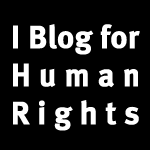Some people argue that politics and religion should not be mixed. In reality the two can never be separated.
In Burma, it is Buddist monks and nuns who are leading the series of peaceful demonstrations demanding recognition of human rights and democratic reform. It is impossible for the watching world not to be humbled by their integrity, courage and dignity, their flowing coloured robes in contrast to the drab military garb around them. As they march they sing, meditate and pray; their alms bowls turned upside down, a symbol of a boycott of alms from the military regime and its supporters. In refusing offerings from those they brand "pitiless soldier kings", they are excommunicating them - an act only undertaken in the most compelling moral circumstances. Undeterred by the beatings and threats, they signal that they are prepared to spill blood or die for the cause of democracy and human rights and the end of abject poverty, censorship and injustice. Respected with “special status” the military junta has previously hesitated to crack down on the monks. That is beginning to change in a drastic and dangerous way.
Even though the brutal authoritarian regime has responded with terrifying and indiscriminate violence, arrests and brutal torture, hundreds of thousands of students and other ordinary people have been emboldened to join monks and nuns in their protests, also taking to the streets in defiance of the regime and its’ threats. The momentum gaining day-by-day. They need and deserve international support, not only in word, but also practical and co-ordinated action.
It is time for action from the international community. The EU’s current “Common Position” calling for democratic change must be strengthened and backed-up by political, economic and diplomatic action against the regime if no progress is forthcoming. The UN must do likewise, continuing their demands for the immediate release of democracy movement leader Daw Aung San Suu Kyi (whose landslide election victory led her not to power but to house arrest) and other political prisoners, making the case for change.
The stakes are high but it is a privilege to stand in solidarity and compassion with the nuns and monks who are not just supporters of this great progressive movement for change but are that movement. No amount of brutality and intimidation can distinguish their righteousness and determination that one day their people will be free.
Saturday, September 29, 2007
Subscribe to:
Posts (Atom)



